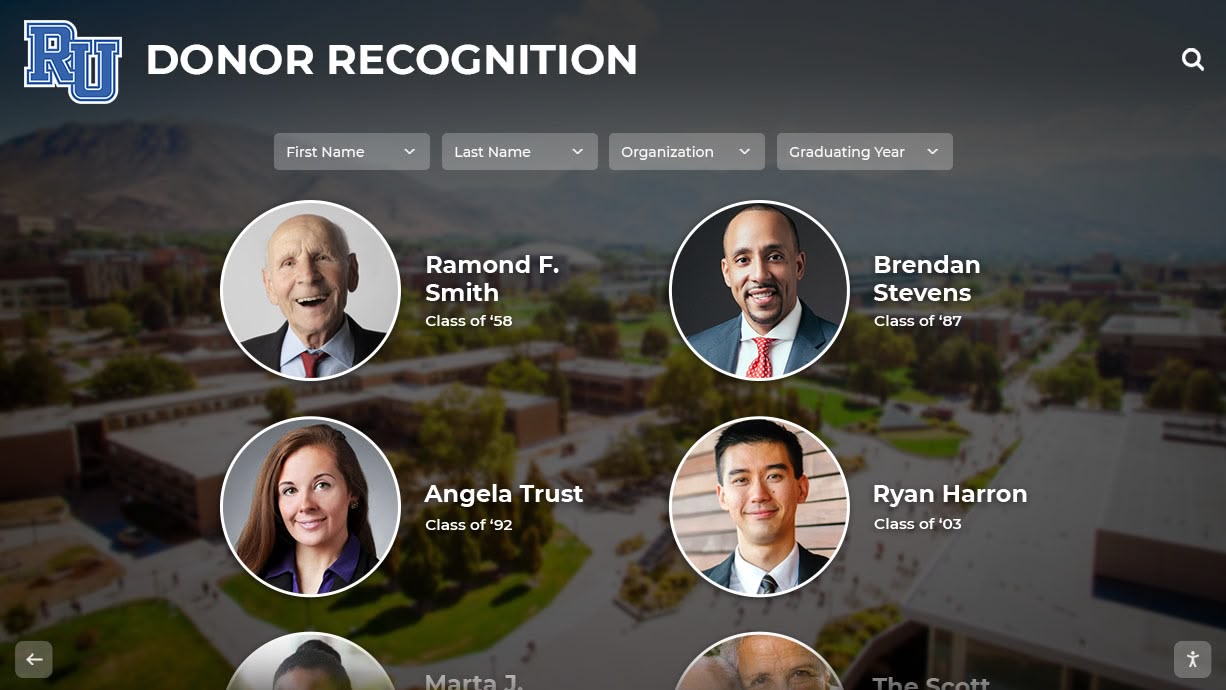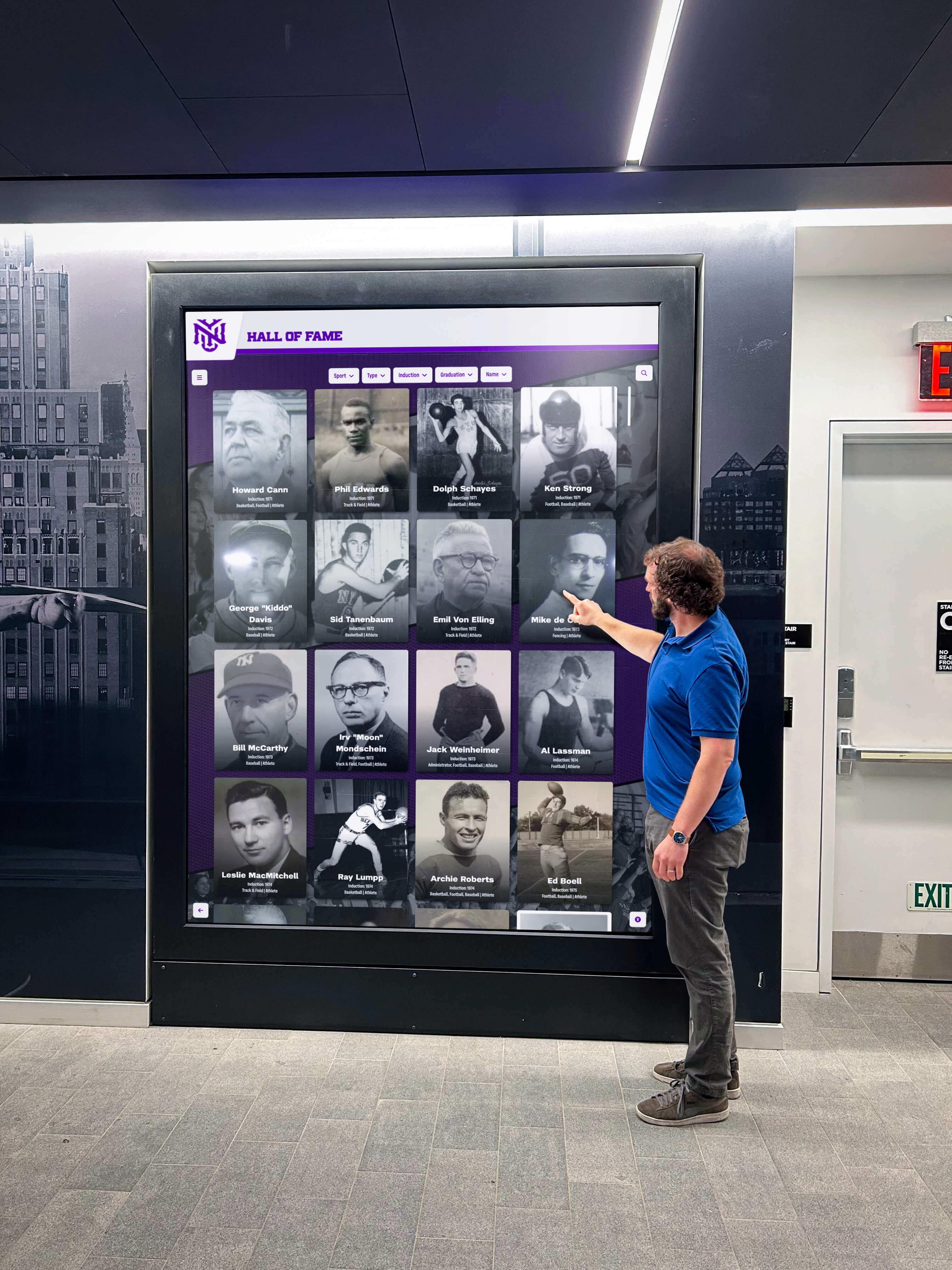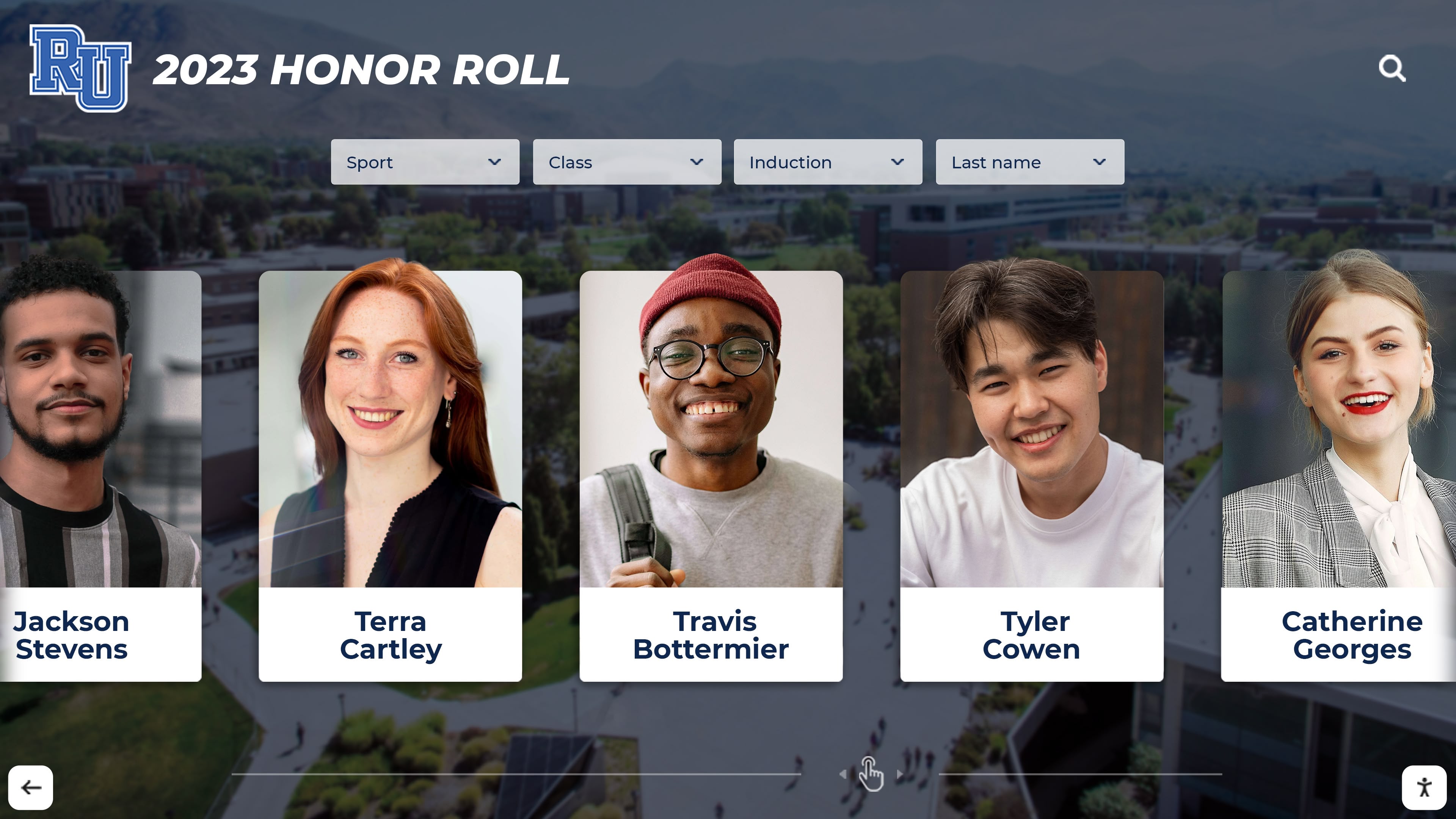Key Takeaways
Discover how to create comprehensive AP Scholar recognition programs using modern digital displays. Learn selection criteria, implementation strategies, and best practices for celebrating Advanced Placement excellence and inspiring future scholars.
Understanding AP Scholar Recognition and Its Significance
Before implementing recognition programs, schools must understand what AP Scholar designation represents and why proper celebration matters for students, educators, and communities.
The Advanced Placement Scholar Awards Program Explained
The College Board’s AP Scholar Awards recognize high school students who demonstrate exceptional college-level achievement through Advanced Placement examinations. Unlike course grades or teacher recommendations, these honors provide standardized, externally-validated acknowledgment of academic excellence recognized nationwide by colleges and universities.
Program Structure and Recognition Levels
The AP Scholar Awards program includes several distinction levels, each representing different achievement thresholds:
AP Scholar: Granted to students receiving scores of 3 or higher on three or more AP Exams. This foundational level acknowledges solid performance across multiple college-level assessments.
AP Scholar with Honor: Granted to students achieving an average score of at least 3.25 on all AP Exams taken, with scores of 3 or higher on four or more exams. This distinction recognizes both breadth of AP coursework and consistency of strong performance.
AP Scholar with Distinction: Requiring an average score of at least 3.5 on all AP Exams taken and scores of 3 or higher on five or more exams, this highest general recognition level acknowledges exceptional sustained excellence across substantial AP coursework.
State AP Scholar: Awarded to the one male and one female student in each U.S. state with the highest average score on the greatest number of AP Exams (minimum of three exams with grades of 3 or higher). This prestigious state-level distinction provides exclusive recognition for top performers within each state.
National AP Scholar: Granted to students in the United States who achieve an average score of at least 4 on all AP Exams taken and scores of 4 or higher on eight or more exams. This elite national recognition represents the pinnacle of AP achievement for most students.

Why AP Scholar Recognition Deserves Special Celebration
AP Scholar achievement merits comprehensive recognition programs extending beyond brief announcements or certificates filed away and forgotten.
External Validation of Academic Excellence
Unlike school-specific honors that vary in rigor across institutions, AP Scholar recognition provides standardized acknowledgment of genuine college-level academic capability. When students earn AP Scholar distinction, independent national assessment confirms their intellectual abilities rather than relying solely on internal school measures. This external validation carries particular weight with colleges evaluating academic preparation, scholarship programs assessing merit, and employers seeking evidence of intellectual capability and work ethic.
Demonstration of School Quality and Rigor
Schools consistently producing AP Scholars demonstrate educational effectiveness and academic rigor that distinguish them from institutions offering limited advanced coursework. The number and level of AP Scholars a school recognizes each year serves as a widely-understood benchmark of institutional quality that prospective families, community members, and education policymakers readily comprehend.
According to College Board data, schools with strong AP programs report higher overall academic achievement, increased college acceptance rates, and stronger preparation for university-level coursework. Comprehensive recognition of academic excellence demonstrates commitment to rigorous instruction and validates educational approaches.
Inspiration for Younger Students
Visible recognition of AP Scholars creates aspirational targets for underclassmen who can see concrete evidence that students from their school achieve the highest levels of academic distinction. When freshmen and sophomores regularly encounter displays celebrating AP Scholars, abstract goals like “challenge yourself academically” transform into specific targets: enroll in AP courses and perform well enough on examinations to earn Scholar recognition.
This inspiration proves particularly powerful when current students see recent graduates—perhaps older siblings, neighbors, or students they know personally—among AP Scholar honorees. Visible pathways to exceptional achievement motivate sustained effort that might not occur without tangible evidence that elite academic success remains achievable within their school community.
Recruitment and College Placement Benefits
Prospective families touring schools frequently seek evidence of academic excellence and college preparation quality. Comprehensive displays highlighting AP Scholar recognition provide immediate, credible validation of instructional effectiveness and student achievement that influences enrollment decisions for academically-focused families choosing between multiple school options.
Additionally, colleges reviewing applications from your school develop familiarity with your institution’s academic standards based partly on the caliber of AP Scholars you consistently produce. Strong track records of AP achievement enhance your school’s reputation with admissions offices, potentially benefiting all applicants.
Establishing Selection Criteria and Recognition Standards
Effective AP Scholar recognition programs require clear criteria ensuring all deserving students receive appropriate acknowledgment while maintaining standards befitting these prestigious distinctions.
Determining Which AP Levels to Recognize
Schools must decide which AP Scholar achievement levels warrant recognition within their programs, balancing inclusivity with maintaining the special significance of higher distinctions.
Comprehensive Recognition Approach
Many schools choose to recognize all AP Scholar levels—from foundational AP Scholar through National AP Scholar—creating comprehensive programs that celebrate achievement at every level. This inclusive approach acknowledges that even earning basic AP Scholar status represents significant accomplishment worthy of recognition, while still honoring the additional excellence required for higher distinctions through tiered recognition or special emphasis.
Benefits of comprehensive recognition include maximizing student motivation by making recognition achievable at multiple levels, documenting complete institutional AP achievement history, and validating the substantial effort required even for foundational AP Scholar status.
Selective Recognition Strategy
Alternatively, some institutions focus recognition exclusively on higher AP Scholar levels—AP Scholar with Honor, AP Scholar with Distinction, State AP Scholar, and National AP Scholar—treating these as truly exceptional achievements meriting special distinction. This selective approach maintains exclusivity and prestige for recognition, preventing perception that honored status lacks special significance.
Schools implementing selective recognition often provide alternative acknowledgment for foundational AP Scholar achievement through honor roll programs, academic awards ceremonies, or graduation recognition, ensuring students receive appropriate validation even if not featured in signature recognition displays.
Integrating AP Recognition with Broader Academic Honors
AP Scholar recognition proves most effective when integrated within comprehensive academic recognition programs that celebrate diverse forms of scholarly excellence.

Comprehensive Academic Recognition Categories
Effective programs position AP Scholar recognition alongside complementary academic honors including National Merit Scholar and College Board National Recognition Program recipients, honor roll and dean’s list achievement, departmental academic excellence awards, academic competition success like science fairs and math olympiads, scholarship recipients and college acceptance achievements, and academic improvement and growth recognition.
This comprehensive approach demonstrates that exceptional achievement takes many forms while positioning AP Scholar recognition as one pathway among several to academic distinction. Students who excel in different areas receive appropriate validation, preventing narrow definitions of success that exclude capable students whose strengths lie in different domains.
Creating Recognition Hierarchies That Celebrate Diverse Excellence
When organizing displays featuring multiple achievement types, thoughtful hierarchy ensures AP Scholar recognition receives appropriate prominence without diminishing other accomplishments. Digital recognition systems excel at managing these nuances through filterable category browsing, featured content rotation highlighting different achievement types, search functionality enabling targeted discovery, and integrated profiles showing students’ complete achievement records across multiple recognition categories.
Solutions like digital recognition displays provide flexible frameworks for celebrating diverse academic achievements while maintaining clear organization that helps audiences understand relationships between different forms of recognition.
Content Development for AP Scholar Profiles
Recognition value depends on content quality, not just existence. The best AP Scholar programs tell complete, engaging stories rather than presenting minimal information.
Essential Profile Elements for AP Scholars
Comprehensive profiles should include specific information creating complete pictures of achievement, academic journeys, and connections to educational preparation.
Core Recognition Information
Document fundamental details establishing recognition credibility including student name and graduation year, specific AP Scholar level achieved (AP Scholar, with Honor, with Distinction, State, or National), number of AP Exams taken and scores achieved, AP subject areas in which student excelled, and year recognition was earned.
Academic Context and Achievement Details
Beyond basic statistics, effective profiles provide context helping audiences understand achievement significance including overall GPA and class rank demonstrating well-rounded excellence, other academic honors and awards received, academic interests and intended college major, AP courses taken throughout high school career, and preparation strategies and study approaches students found effective.
This additional context shows that AP Scholar recognition reflects sustained academic excellence and intellectual commitment rather than single test performance, emphasizing that current students can pursue similar excellence through dedication and effective strategies.
Personal Narratives and Student Reflections
First-person content creates authentic connections including reflections on how AP coursework prepared them for college success, memories of teachers or coursework that proved particularly impactful, advice for current students considering AP enrollment or preparing for exams, insights into balancing rigorous coursework with other commitments, and expressions of gratitude toward educators who supported their academic journey.
Personal narratives humanize extraordinary achievements, making AP Scholars relatable rather than impossibly gifted individuals beyond normal students’ reach. When current students read about AP Scholars facing similar challenges and succeeding through hard work rather than innate genius, the recognition becomes powerfully motivational.

Teacher and Counselor Testimonials
Professional perspectives from educators who worked with AP Scholars add depth and credibility through brief quotes commenting on intellectual curiosity and engagement, observations about work ethic and academic dedication, insights into how students approached challenging coursework, reflections on character qualities beyond academic ability, and perspectives on college readiness and future potential.
These professional testimonials validate that AP Scholar achievement reflects sustained effort and character rather than single test performance, emphasizing comprehensive excellence that schools seek to cultivate.
Creating Engaging Content That Inspires
Effective profile writing balances formality appropriate for honoring distinguished achievements with accessibility engaging diverse audiences.
Active Voice and Specific Examples
Profiles should use action verbs and engaging syntax rather than passive, bureaucratic language. “Sarah pioneered independent research projects exploring environmental science applications of AP Chemistry concepts” engages more effectively than “independent research was conducted by Sarah.” Dynamic writing makes achievements come alive rather than reading like résumé bullet points.
Rather than general statements like “excellent student” or “strong performance,” compelling profiles provide concrete details: “achieved perfect 5 scores on six AP Exams spanning sciences, mathematics, and humanities” or “balanced rigorous AP coursework with leadership of school science club and 200+ hours community tutoring.” Specific information gives audiences clear understanding of actual accomplishment while demonstrating achievement depth.
Story Arcs Showing Growth
The most engaging profiles present narratives showing progression from initial AP enrollment through exam preparation to distinguished achievement. How did early AP courses build confidence for later challenges? What study strategies proved most effective? How did AP coursework shape college and career plans? Story structure creates emotional engagement helping audiences connect with AP Scholars as real people rather than just impressive achievement lists.
Modern Digital Recognition Solutions for AP Scholars
While traditional certificates and bulletin boards have served recognition purposes for generations, modern digital technology offers capabilities that dramatically enhance effectiveness and practicality of AP Scholar recognition programs.
Advantages of Digital AP Scholar Recognition
Digital recognition solutions provide numerous advantages over traditional approaches, particularly for institutions seeking to maximize engagement, maintain inclusivity, and reduce long-term maintenance burden.
Unlimited Recognition Capacity
Digital platforms eliminate physical space constraints entirely. Schools can honor every AP Scholar in program history—from current recipients back through decades of academic excellence—without competing for limited wall space. Each student receives comprehensive profile space impossible with traditional plaques, and adding new recipients requires no additional hardware investment or physical construction.
Digital systems scale effortlessly from dozens to hundreds of AP Scholar honorees while maintaining fast performance and excellent user experience regardless of content volume, ensuring recognition programs remain sustainable as your AP program grows and produces increasing numbers of distinguished scholars.

Rich Multimedia Storytelling
Digital platforms transform basic name-and-level listings into compelling narratives. AP Scholar profiles can include professional photography from academic activities and award ceremonies, video interviews discussing exam preparation strategies and college application experiences, complete academic profiles including course rigor and additional achievements, quotes from students reflecting on their achievement journeys, teacher testimonials about intellectual engagement and character, information about college choices and scholarship awards, and follow-up content documenting college academic honors and career paths.
This storytelling depth creates emotional connections that inspire current students while honoring past achievements appropriately. When sophomores considering AP enrollment explore profiles discovering how AP Scholars balanced challenging coursework, prepared for examinations, or overcame academic obstacles, they gain practical insights and motivational examples that static plaques cannot provide.
Instant Real-Time Updates
When students earn AP Scholar recognition—typically announced in the fall following junior year AP exams or in final year—counselors can add comprehensive profiles to digital displays immediately. No waiting for physical materials to arrive or installation schedules to open. Cloud-based content management systems allow updates from any internet-connected device using simple web interfaces. School staff without technical backgrounds can publish professional-quality recognition within minutes, making timely celebration practical even for busy counseling departments managing multiple responsibilities.
Interactive Exploration and Discovery
Touchscreen interfaces enable active exploration rather than passive viewing. Students can search for specific scholars by name to find older siblings or graduates they know, browse by graduating class to explore program history chronologically, filter by AP Scholar level to understand progression from Scholar to Distinction, view by subject area to see which AP courses students took, or discover college destinations to understand where AP Scholars pursue higher education.
This interactivity increases engagement time dramatically. Students typically spend several minutes exploring well-designed digital recognition compared to brief glances at static trophy cases, creating deeper connections with content and stronger impacts on motivation and academic aspirations. Schools implementing comprehensive student recognition programs report significantly higher engagement with interactive displays compared to traditional static recognition.
Extended Reach Through Web Access
Digital recognition platforms extend beyond physical displays in buildings through responsive websites accessible from any device, mobile companion apps providing portable access, social media integration enabling easy sharing, and QR codes on physical spaces linking to expanded digital content.
This accessibility multiplies engagement exponentially beyond in-person visitors to physical displays, allowing AP Scholars worldwide to view recognition and share with families, prospective students to explore AP success before visiting campus, and colleges to verify AP achievements referenced in applications. For geographically dispersed communities, this expanded reach proves particularly valuable in maximizing recognition impact.
Implementing Digital Recognition Systems
For schools choosing digital recognition, careful planning ensures platforms serve objectives effectively while fitting resources and capabilities.
Essential Platform Requirements
Quality digital recognition systems designed for educational environments provide intuitive content management for non-technical staff updating information, user-friendly interfaces ensuring accessibility for all ages and abilities, comprehensive profile templates supporting rich multimedia content, robust search and filtering capabilities enabling efficient discovery, mobile-responsive design functioning across all device types, reliable analytics tracking engagement and informing optimization, and proven vendor support with education-specific expertise.
Platforms specifically designed for school recognition like those offered by Rocket Alumni Solutions offer particular advantages through purpose-built features addressing educational needs, extensive implementation experience across diverse institutions, ongoing support understanding school constraints and priorities, and regular platform updates incorporating new capabilities.
Hardware Specifications for Physical Displays
Commercial-grade touchscreen displays rated for continuous institutional operation, minimum 4K resolution for professional presentation quality, reliable multi-touch technology supporting intuitive interaction, appropriate screen size for viewing distance and available space (commonly 55"-75"), and secure mounting with professional cable management ensuring clean, safe installation meeting institutional standards.

Strategic Physical Placement
Location dramatically affects visibility and engagement through high-traffic areas maximizing exposure like main entrances, guidance offices, and student centers, contextually appropriate locations where academic achievement naturally connects, accessible positioning meeting ADA requirements enabling comfortable interaction, and environmental considerations including lighting avoiding screen glare, reliable power and network connectivity, appropriate ambient noise levels, and climate control protecting equipment.
Understanding best practices for academic walls of fame helps institutions make informed decisions about technology platforms, hardware specifications, and implementation approaches maximizing recognition effectiveness while fitting institutional contexts.
Building Comprehensive AP Recognition Programs
Successful AP Scholar recognition requires systematic approaches ensuring programs serve multiple stakeholder needs while remaining sustainable with realistic resources.
Annual Recognition Cycles and Update Schedules
AP Scholar designations are typically awarded in September following the academic year when students took their AP Exams, creating natural recognition cycles schools should leverage strategically.
Fall Recognition Window
When College Board announces AP Scholar recipients each September, schools should implement immediate recognition including prompt congratulation communications to students and families, rapid profile development gathering information and media, timely display updates adding new honorees to recognition platforms, public announcements through assemblies and school communications, and formal recognition ceremonies celebrating achievement with broader community.
Prompt recognition while achievement remains fresh maximizes motivational impact and demonstrates that schools value AP excellence enough to celebrate immediately rather than treating recognition as low-priority administrative task handled whenever convenient.
Ongoing Profile Enhancement
Initial recognition typically focuses on core achievement details, but profiles can be enhanced over time through follow-up video interviews capturing student reflections, updates documenting college acceptances and scholarship awards, alumni check-ins adding college achievement and career information, special features on milestone anniversaries or exceptional accomplishments, and continuous improvement refining content quality and multimedia elements.
This ongoing attention demonstrates sustained commitment to recognition rather than one-time acknowledgment, while keeping displays fresh and providing reasons for repeat engagement with recognition content.
Integration with College Application and Planning Support
AP Scholar recognition should connect with broader college counseling initiatives supporting students throughout application processes.
Recognition as Portfolio Element
Help AP Scholars understand how to leverage recognition effectively including proper placement on college applications and résumés, context explaining significance to audiences unfamiliar with program, connection to broader academic achievement narrative, and utilization in scholarship applications emphasizing merit. Guidance counselors should proactively discuss recognition’s role in strengthening college applications, ensuring students capitalize fully on achievements they worked hard to earn.
Preparation Support for Future Scholars
Use current AP Scholar recognition to support students working toward similar goals through sophomore and junior information sessions featuring current scholars discussing preparation strategies, exam preparation workshops incorporating advice from successful predecessors, peer tutoring programs pairing AP Scholars with current AP students, and ongoing motivation through visible recognition showing achievement remains attainable.
Measuring Impact and Ensuring Sustainability
Effective recognition programs require ongoing attention maintaining relevance, accuracy, and engagement across years as new achievements emerge and institutional contexts evolve.
Tracking Recognition Program Success
Data-informed management ensures programs continuously improve based on actual engagement patterns rather than assumptions.
Quantitative Success Metrics
Monitor objective measures demonstrating program reach and impact including number of students recognized annually and cumulative totals, percentage of AP test-takers earning Scholar recognition at various levels, engagement analytics for digital displays showing usage patterns, website visits and profile views for web-accessible recognition, and social media reach and sharing of recognition content.
Qualitative Impact Assessment
Complement quantitative metrics with insights about program effects including student surveys about AP Scholar recognition awareness and motivational impact, teacher feedback about program influence on AP enrollment and performance, family satisfaction with recognition experience and communication, guidance counselor perspectives on college placement benefits, and anecdotal examples of students inspired by recognition to pursue AP coursework.

Ensuring Long-Term Program Sustainability
Recognition programs require ongoing resources and attention to remain effective across years and leadership changes.
Clear Responsibility Assignment
Designate specific positions responsible for recognition program management including primary coordinator overseeing all recognition activities, content developers creating profiles and gathering media, technical administrators managing digital platforms, communication leads promoting recognition and engaging stakeholders, and selection committee members reviewing any discretionary decisions.
Written documentation of roles, processes, and standards ensures institutional knowledge persists across staff transitions, preventing recognition programs from becoming dependent on single individuals whose departure threatens sustainability.
Budget Allocation and Resource Planning
Incorporate recognition costs into annual budgets rather than treating as one-time expense including digital platform subscription or licensing fees, hardware maintenance and eventual replacement planning, content development resources like photography and videography, ceremony or event costs if applicable, and staff time allocated to recognition management.
Understanding solutions for recognizing famous alumni demonstrates how comprehensive recognition programs require sustained resource commitments but deliver valuable returns through student motivation, community engagement, and institutional reputation enhancement.
Conclusion: Building Cultures of Academic Excellence Through AP Recognition
AP Scholar recognition represents strategic investment in academic culture, student inspiration, and institutional identity. When thoughtfully designed and consistently maintained, these programs honor extraordinary individual achievement while strengthening collective commitment to academic excellence and demonstrating educational effectiveness.
The most successful AP recognition programs share common characteristics including clear criteria celebrating achievement at appropriate levels, compelling storytelling bringing accomplishments to life through rich content, accessible discovery enabling audiences to engage efficiently, sustainable processes ensuring recognition continues across years, strategic integration with counseling and college preparation initiatives, and continuous improvement based on feedback and outcomes.
Modern digital recognition solutions like those from Rocket Alumni Solutions provide schools with comprehensive capabilities for creating engaging, accessible, and expandable AP Scholar programs. Unlimited capacity accommodates all distinguished scholars without space constraints, rich multimedia tells compelling stories honoring achievements appropriately, instant updates eliminate physical modification costs and delays, remote accessibility extends engagement beyond campus visitors, and continuous expandability ensures recognition remains relevant across decades.
Beyond immediate recognition purposes, effective AP Scholar programs create lasting benefits including inspiring current students through tangible role models showing achievement possibilities, strengthening overall academic culture emphasizing excellence and rigorous preparation, supporting recruitment through demonstrated college readiness, preserving institutional history documenting academic achievement across generations, and generating increased pride among students, families, and communities.
Every AP Scholar deserves recognition honoring their achievement appropriately. Every current student deserves inspiration from those who preceded them and succeeded through dedication to academic excellence. Every school deserves comprehensive tools preserving its legacy while engaging contemporary audiences effectively. Modern AP Scholar recognition programs—whether traditional, digital, or hybrid—make these aspirations achievable for schools committed to celebrating academic distinction while building lasting cultures of intellectual excellence.
Ready to create an AP Scholar recognition program that honors your distinguished students while strengthening academic culture? Explore how comprehensive recognition platforms designed specifically for schools make world-class academic recognition accessible and manageable for institutions of all sizes, ensuring your AP Scholars receive celebration matching the significance of their remarkable achievements.





































